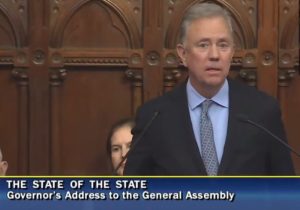The Connecticut Department of Social Services (DSS) has released its second and final report concerning a two-part study of Medicaid reimbursement rates. Phase 2 of the study encompassed an examination of hospital inpatient and outpatient services.
In conducting the study and completing this report, DSS has fulfilled its statutory obligation pursuant to Public Act 23-186, An Act Concerning Nonprofit Provider Retention Of Contract Savings, Community Health Worker Medicaid Reimbursement And Studies Of Medicaid Rates Of Reimbursement, Nursing Home Transportation And Nursing Home Waiting Lists.
The report on Phase 1 of the study was released in February 2024. It provided an inventory of existing Medicaid program reimbursement rates and payment models for a limited number of provider groups, including physician specialists, dentists, and behavioral health services providers. Part one of the study revealed Connecticut’s distressingly low Medicaid reimbursement rates, prompting state officials and lawmakers to sound the alarm on the detrimental impact of insufficient government payments. Connecticut’s chronic underfunding of Medicaid is depriving beneficiaries of access to essential care and social supports and driving up healthcare costs system-wide.
The Connecticut Hospital Association (CHA) has reviewed the Phase 2 report. CHA recognizes, as the report states, the challenges DSS encountered in attempting to compare Connecticut Medicaid reimbursement rates to those of other states. As a result, the Phase 2 examination of hospital reimbursement is of limited utility in informing public policy. The study does not capture Connecticut-specific factors and does not account for taxes paid by hospitals or supplemental payments, ultimately failing to provide a full picture of the underpayment hospitals are experiencing. The hospital tax settlement covers seven years, through 2026, gradually reducing the tax burden on hospitals, while preserving revenue gains for the state. In accordance with the settlement, for fiscal year (FY) 2025, hospitals face a tax burden of $850 million, while generating more than $546 million dollars in revenue gain for the state.
As detailed in the recently released 2024 CHA Hospital Financial Health Report, supported by a Kaufman Hall analysis, Medicaid underpayment exacerbates financial pressures on Connecticut hospitals as they grapple with rising prescription drug costs, mounting labor expenses, supply chain disruptions, inflation, and more. According to the Office of Health Strategy (OHS), Medicaid reimburses hospitals only 62 cents for every dollar of care provided. In 2023 alone, this shortfall amounted to $1.43 billion. Hospitals, which care for any patient regardless of their ability to pay, are forced to find ways to bridge the financial gap these underpayments create. Governmental payments have not kept pace with the cost of care, jeopardizing healthcare accessibility and affordability for all.



